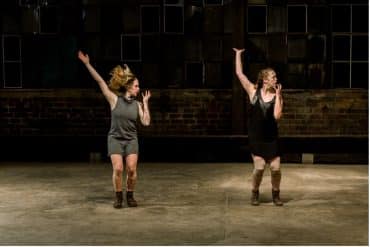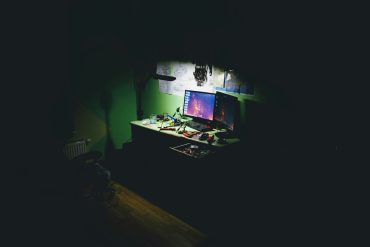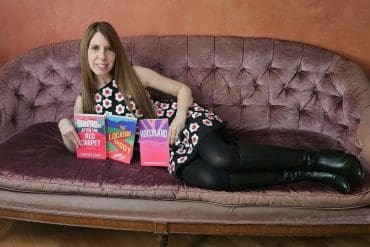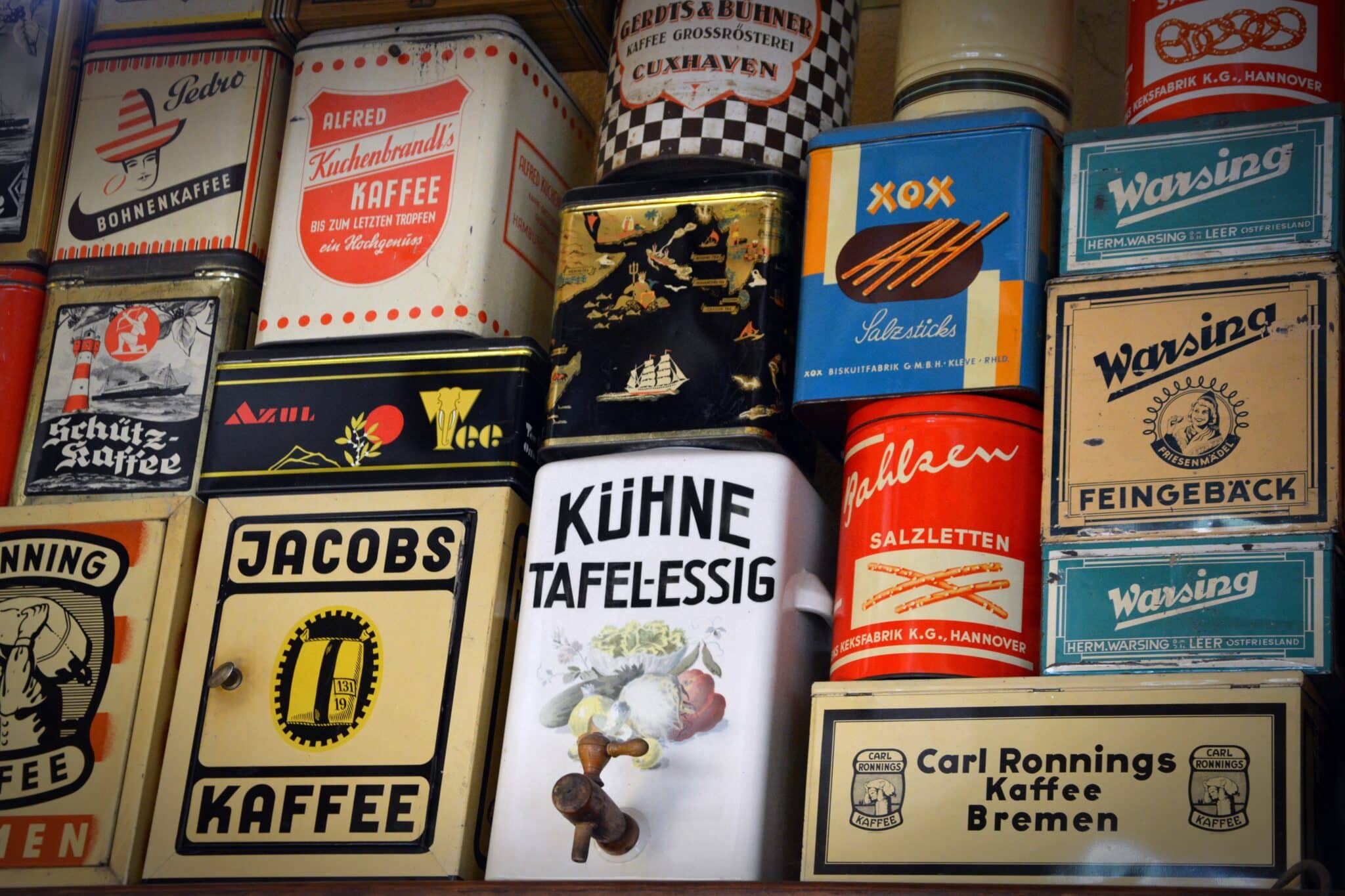Power Relations: German Language, New Identities and Sense of Belonging
Author’s Memo
This autoethnographic account explores the complex relationship between language and identity. Here, learning a foreign language is necessitated by global regimes of migration and mobility. It is also compelled by migrants’ desires for new forms of identity, community and intimacy. The essay is not an uncritical celebration of multilingualism and multiculturalism. It is a personal, embodied and affective exploration of how complex power relations such as racism, homophobia and global geopolitics converge to share a person’s identity and their sense of belonging. Rejecting major forms of globalisation characterised by nation states, supernational entities and transnational capital, the essay celebrates minor forms of transnationalism, cosmopolitanism and intimacy between people with shared vulnerabilities who try to forge new identities and imagine new communities of care in migratory and diasporic contexts.
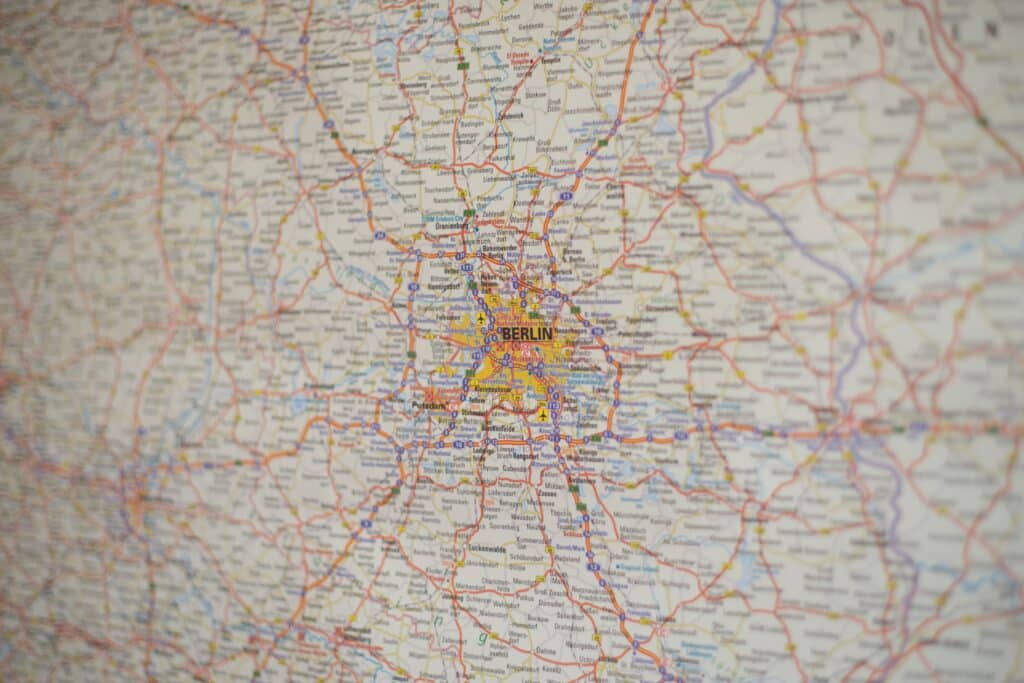
Ten years after I left Germany, I’m still learning German.
Why does a Chinese guy living in the post-Brexit Britain learn a difficult European language that he seldom uses? I tell other people that this is for the convenience of my holiday trips as I travel to Germany sometimes. But the reality is: even if I’m there, I’d speak English most of the time. Learning German is therefore not for practical purposes; it is for me more of a personal hobby, a pastime. This hobby has lasted a decade.
***
Ten years ago, I moved to Berlin after I had submitted my PhD thesis in Sydney. A six-month fellowship brought me to a German university as a visiting scholar. I could have stayed in Australia on a graduate visa and looked for a job there. But I was very much traumatised by the prevalent Sinophobia in Australian politics and society at the time. It was in the middle of a general election, and every media discussion about China was polarised and politically charged. The political debate affected the general public’s attitude towards ordinary Chinese people who lived in the country. Having an Asian face was not something I could conceal from others. I chose to leave the country.
I could have gone back to Beijing where I studied and where I worked as a teacher for a few years in the 2000s. But the 2010s’ Beijing was a very different time and place. The 2008 Beijing Olympics presented a more economically prosperous but politically illiberal China to the world. The whole city was in the rapid process of gentrification, providing an ideal home for the wealthy and the powerful but driving away migrant workers and independent artists. The idealism shared among former classmates during university days was replaced by pragmatism. Almost every middle-class urban Chinese citizen I met was talking about how to make money, buy cars and apartments, or send children to the best schools.
At the same time, the government continued to crack down on feminist and queer movements and China’s civil society. Despite its impressive urban infrastructure and luring opportunities for overseas returnees, I couldn’t see my place as a gay man living in a queer-unfriendly environment in Beijing. I chose to live abroad in self-exile.
Could a sensitive and sentimental young gay man find a better city to live in than Berlin? I didn’t know, but Berlin seemed an ideal place for me at the time. Its vibrant queer and art scenes, as well as the city’s interesting history and rich cultural heritage were overwhelming for me. I remember visiting a huge gay club located in a concrete building in East Berlin and enjoying my new-found anonymous freedom with abandon. The building had Soviet industrial-style architecture which somehow reminded me of Beijing. A strange, and even surreal, mixture of socialist memories and post-Cold War queer hedonism tinted my memory of the city.
After a few weeks, the excitement I felt about the city gave way to the mundane realities of living in a European capital city. I thought speaking English would get me anywhere, but the world didn’t function that way. At restaurants, supermarkets and bus stops, I had the embarrassing moments of trying to express myself with hands and feet to find out where things were. I was staying temporarily with a friend when I first moved to Berlin. However, now I needed to look for a place to live, a WG (shared apartment), with the limited budget I had. When I eventually found a spare attic room to move to, I realised that the landlady did not speak much English. And my German was almost non-existent. My daily communication with her would become a major problem. Not wanting to be an anti-social guest, I decided to learn German.
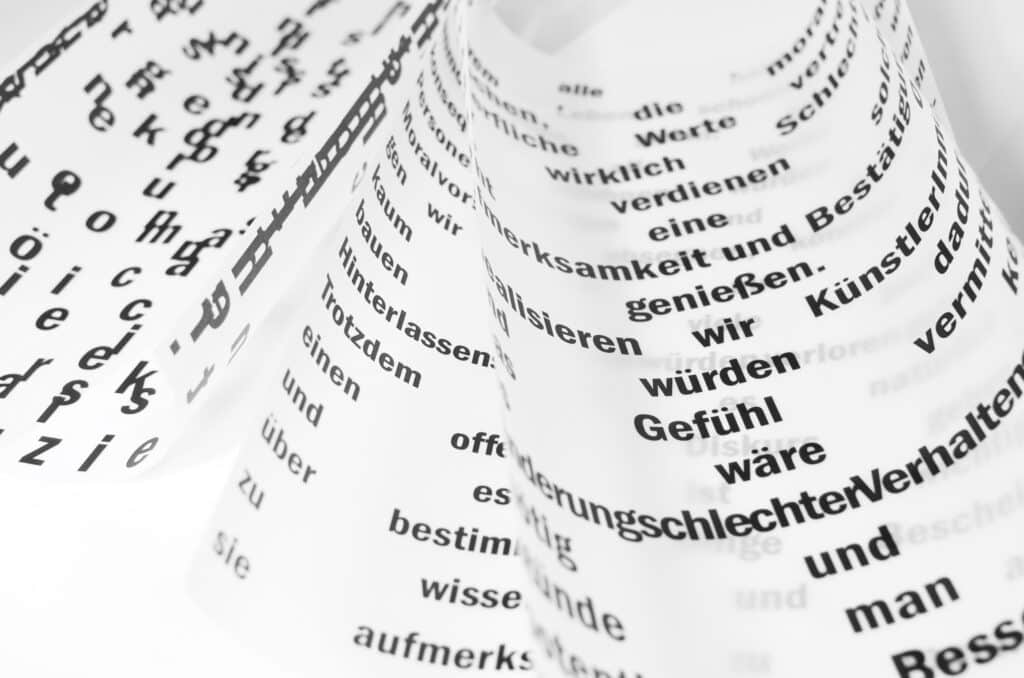
I regretted my decision almost immediately the moment I started my German lessons at a local language school. The language was much more complicated than I had expected it to be: its long word formation, difficult pronunciation and complex sentence structure are a nightmare for a beginner of the language. How can anyone manage to remember so many grammatical rules? Even if one manages to do so, how can one say anything spontaneous without having to spend time thinking about the rules? For a few months, I struggled with the language in perplexity, like a small boat lost at sea. At the same time, I lost much of my linguistic skills in English and Mandarin Chinese. I became a person without a language, a migrant without a home.
This feeling of uncertainty also characterized my life in Berlin. After the honeymoon phase, I faced the realities of living as a foreigner in the city, struggling with a new language and culture, with daily life and communication, or simply with making a living. The treatment I received, being a foreigner and migrant, made me feel like a second-class citizen in German society. Being Asian probably made things worse because of the ubiquitous orientalist and racist stereotypes associated with it. I also found the gay community that I was initially enthusiastic about was largely structured by whiteness and eurocentrism, where Asians were positioned at the bottom of the hierarchy. Even people who were friendly to Asians spoke of Asians as homogeneous, passive, erotic objects. The liberal bubble of the gay world started to burst in front of my eyes.
Despite the difficulty of my life as an unemployed migrant (not as an expat, a term exclusively attributed to white and cosmopolitan travelers from developed Western countries), I managed to settle down in the city. I started to get used to the long and cold winter days, the tedious and rigid bureaucratic process of getting up insanely early and queuing in front of the Ausländerbehörde simply to get an appointment for one’s visa application, bread and sauerkraut, accusatives and datives …
I also began to make friends. People in my German class came from different parts of the world and different walks of life. They all brought their own cultures and personalities to the classroom. Regardless of where people came from and what their backgrounds were, people shared similar experiences of migration and dislocation, and complaints about the German language and weather. A small international community, a community of experience, practice, as well as mutual help and support, started to form.
People used basic English to communicate with each other in the first couple of months. Soon the lingua franca became simple German. No one laughed at each other for their linguistic mistakes, and everyone was on the same boat. Somehow the fragmented and grammatically incorrect German functioned miraculously among the fellow students. It even made sense for the native speakers. We were making progress in the language, and the confusing world around us started to be clearer each day.
It was a difficult and yet happy time, trying to combat the tendency of the human brain to forget things by repeating an infinite number of words and grammatical rules every day, trying to fight loneliness as a foreigner and migrant by finding oneself in a community of foreigners and migrants, trying to support each other in and out of class. Every day was a new day, and life had a clear aim. The meaning of life was even measurable if one had to think about the different units in a book, or the various levels of a language.
Also importantly, one’s nationality and background didn’t matter so much in the migrant community. Everyone started at almost the same point with the language and was given an equal opportunity to learn the language. People from countries and cultures who wouldn’t normally speak to each other had the chance to talk to each other. Over time, we forgot about national boundaries and cultural stereotypes and treated each other as individuals. I know I am probably portraying a utopian version of a language classroom here. But I felt a sense of liberation as I was trying to learn a new language and culture, and imagine a new identity, a self that is connected, relational and effective.
After a year, I moved from Berlin to London to start a postdoc position. And I subsequently found a more stable academic job in the UK. Over the years, I kept the habit of learning German every day, even during the most intense days of Brexit, when learning a European language was treated with suspicion, and when the former British Prime Minister Theresa May famously declared ‘if you believe you are a citizen of the world, you are a citizen of nowhere.’ I would respond good-humorously, in Virginia Woolf’s style: as a queer as I have no country; as a queer my country is the whole world.
Anyone who has had the experience of learning a foreign language would appreciate the time and effort one must invest to keep the language going, or simply trying not to forget everything. I often watch YouTube videos, listen to podcasts, read online newspapers and attend evening language classes in German. Learning German has become an integral part of my life and my identity. It reminds me of the difficult times I went through living in a foreign country and trying to create a new life, the international community of care and support in which I found myself, as well as the young, open and cosmopolitan self that I imagine myself to remain.
Credits
Featured Image by Pixabay for Pexels
German Words By Pexels by Skylar Kang
Learn More
New to autoethnography? Visit What Is Autoethnography? How Can I Learn More? to learn about autoethnographic writing and expressive arts. Interested in contributing? Then, view our editorial board’s What Do Editors Look for When Reviewing Evocative Autoethnographic Work?. Accordingly, check out our Submissions page. View Our Team in order to learn about our editorial board. Please see our Work with Us page to learn about volunteering at The AutoEthnographer. Visit Scholarships to learn about our annual student scholarship competition.
Hongwei Bao (he/they) grew up in China and lives in Nottingham, UK. He studied Gender and Cultural Studies at the University of Sydney, Australia, and creative writing at City Lit, London. He uses poetry, short stories and creative nonfiction to explore issues of queer desire, Asian identity, gender politics and transcultural intimacy. His work has appeared in Cha: An Asian Literary Journal, Ponder Review, Positions Politics, Shanghai Literary Review, The Autoethnographer, The Sociological Review, Voice & Verse, Write On and Words Without Borders. His short stories were shortlisted for the Plaza Prize 2023 for Sudden Fiction. His nonfiction ‘Fragrant Bananas’ is forthcoming with the Allegory Ridge Nonfiction Anthology Allegheny.



